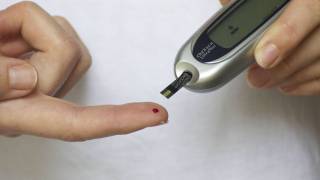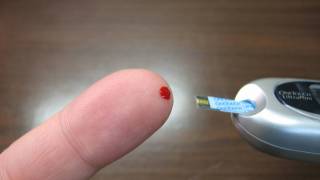Diabetes Type 1 Mitigated With Tuberculosis Vaccine

A new research paper describes how a 100-year-old tuberculosis vaccine might affect young diabetics in a positive manner.
This small study from a Massachusetts General Hospital (MGH) research team, reports that the effects of Bacillus Calmette-Guérin (BCG) vaccination at birth on lymphocyte subsets was found in healthy infants in a high-income setting, within the first 13 months of life.
According to this study, the BCG vaccine alters the immune system to increase levels of T regulatory cells.
These cells help keep other immune cells in check, including those that attack the pancreas insulin-making cells, which is the root cause of type 1 diabetes.
In addition, the BCG vaccine alters metabolism, so cells consume higher levels of glucose, drawing more of it out of the blood, in a process called aerobic glycolysis.
A total of 118 healthy infants were randomized in this study for neonatal BCG vaccination or to no intervention.
BCG was reported to associate with higher proportions and absolute counts of both CD4+ T and CD8+ effector memory T cells at 3 months and reduced proportion and absolute counts of apoptotic and late differentiated cells at 13 months.
“This is clinical validation of the potential to stable lower blood sugars to near normal levels with a safe vaccine, even in patients with longstanding disease,” says Denise Faustman, MD, PhD, director of the MGH Immunobiology Laboratory, principal investigator of BCG clinical trials at MGH and senior author of the Vaccines report.
“In addition to the clinical outcomes, we now have a clear understanding of the mechanisms through which limited BCG vaccine doses can make permanent, beneficial changes to the immune system and lower blood sugars in type 1 diabetes,” said Dr. Faustman in a press release.
Initial clinical trial results, published in a 2012 PLOS One paper, reported that two doses of BCG spaced four weeks apart led to reductions in autoreactive T cells, an increase in Tregs and what turned out to be a transient increase in insulin production.
But by the end of that short, 20-week trial, there was no reduction in HbA1c, the established measure of blood sugar levels over time. An extension and expansion of that trial with long-term follow-up, the current results are based on data from 282 human study participants – 52 with type 1 diabetes who participated in the BCG clinical trials and 230 who contributed blood samples for mechanistic studies.
A Phase 2 clinical trial of BCG is currently underway at Mass. General. It is testing multiple BCG doses in 150 patients with longstanding type 1 diabetes.
The BCG vaccine is used in many countries with a high prevalence of TB to prevent childhood tuberculous meningitis and miliary disease.
However, BCG is not generally recommended for use in the United States because of the low risk of infection with Mycobacterium tuberculosis, the variable effectiveness of the vaccine against adult pulmonary TB, and the vaccine’s potential interference with tuberculin skin test reactivity.
The BCG vaccine should be considered only for very select persons who meet specific criteria and in consultation with a TB expert, says the Centers for Disease Control and Prevention.
Our Trust Standards: Medical Advisory Committee
- Effects of Bacillus Calmette-Guérin (BCG) vaccination at birth on T and B lymphocyte subsets
- Repeat BCG Vaccinations for the Treatment of Established Type 1 Diabetes
- Bacille Calmette Guérin Immunisation at Birth and Childhood Morbidity in Danish Children.
- BCG Vaccine
- Long-term reduction in hyperglycemia in advanced type 1 diabetes: the value of induced aerobic glycolysis with BCG















